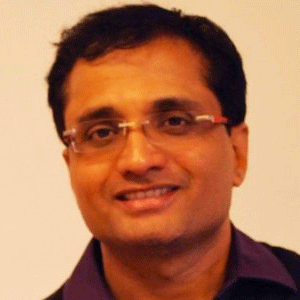THANK YOU FOR SUBSCRIBING

Leveraging Technology and Engineering for Public Good
Atti Riazi, Assistant Secretary-General & CITO, United Nations


Atti Riazi, Assistant Secretary-General & CITO, United Nations
Impediments on the Road
With broad international endorsement, the United Nations has defined 17 Sustainable Development Goals (SDGs), which build upon the success of the Millennium Development Goals (MDGs). This raises a global challenge to CIOs and the technology sector worldwide to develop innovative solutions and deploy technology to improve the human condition in various aspects from climate change to extreme poverty. The sustainable development goals also address the crucial issues of gender equality and empowerment, universal healthcare, the digital divide, smart cities and the protection and re-generation of eco-systems. New challenges spinning off from the advancement of technology, including cyber security and e-waste, also demand urgent attention. The creative talent to address all these issues exists, along with the requisite technology to deliver real solutions. What is needed are firm commitments at the highest levels and the needed resources to address the issues.
Making a Shift from Crisis Reaction to Crisis Prevention
We have for the longest time made decisions based on urban legends and gut feel. Analytics, predictive modeling, and machine learning are major shifts in human understanding and evolution. If we understand ‘cause’ we can predict ‘effect’ across many data points and time. Predictions and correlation using technology will drastically change every sector and allow for far more in-depth understanding of issue and causality. This will move us from crisis reaction to crisis prevention.
Knowing about a break out of Ebola or bird flu a month earlier would have immense effect on human life and our ability to react much faster. Understanding that an inch less rain can cause major unrest or civil war in 2 years in a region has major humanitarian and economic value. If we can predict better, we will also better understand the full impact of innovation and advancements in technology. Looking back at a simple innovation of a single combustion engine (a car), no one could have predicted its impact on land, water, deforestation, and climate change. With predictive modeling, we could better foresee the potential impact of our innovation or intervention long term.
Role of Technology in Achieving SDGs
Technology can have an impact in helping us achieve all the SDGs. A few examples include: Green technologies that address the critical need for clean energy sources and support sustainable cities are particularly important for developing markets, and even some developed markets.
Virtual doctors and nurses and automating diagnosis of disease through expert systems will help bring healthcare to millions more people.
Free education through access to the Internet will allow millions of children access to education.
Increased availability of free, reliable Internet access will also provide economic opportunities for many, particularly women entrepreneurs.
Digital payments will enable easier access to services for many people especially those that are displaced or do not have access to traditional financing systems.
Cyber security and cyber crime prevention and tools will allow us to protect the Organization and its beneficiaries.
The Darker Side of Technology
Technology has immense power, but it also brings about tremendous risk. My biggest concern is that we have great sophistication around innovation, but less so about the impact of innovation on the social, economic and political landscape. What keeps me awake at night is our understanding of risk and how today's innovation will be tomorrow's problem. In the 20th century we had two world wars, a Cold War, we sent a man to the moon, we invented antibiotics, we had Elvis, but the most important discovery perhaps was the Internet, when the world got connected. The immense value of the Internet is unquestionable. We went from homosepians to connected sapiens.
However we did not predict the impact of the Internet fully on the human condition, our work, healthcare, education, our movement, our economies, politics, and many other areas. We have gained much from this connectedness, but new issues have also been created.
Issues of cyber crime, cyber security, cyber wars of the future, identify theft, the dark web - these are just some of problems that have evolved through this innovation. E-waste is yet another one. We did not consider the impact of all our devices and how we would dispose of them. The negative impact of these devices to clean water supplies is a huge problem with mercury and lead poisoning seriously affecting the weakest and poorest in many developing countries.
Technology’s Impact on Business Segments
Some say the aim of science was man's ultimate pursuit to have power over the natural world. This places moral imperatives on technology to act responsibly and to preserve and protect the natural world.
We have created a species called technology that is much smarter than us - it is the 7th kingdom and this convergence of man and machine is bringing humans to their next level of evolution. In this new world much will change, the possibilities are endless.
A Light on Cyber Security and Analysis
Today a small virus like Ebola or bird flu can impact millions of people. However that is being compared to a software virus that brings down the electric grid of country in less than a second. The impact and speed of such an intrusion could affect millions of lives in a heartbeat while destroying world economies. Cyber security is a serious issue impacting everyone and every sector and with a huge impact on cities, industrial systems, military, financial systems, and utilities. The world has to come together to decide how to deal with cyber wars of the future, cyber intrusions and cyber espionage. Everyone must own these problems from the tech-sector to governments, to individuals, to CIOs. We have established a cyber security unit called the Digital Blue Helmets. The responsibility of this team is to provide advanced expertise around cyber security and analytics to our internal UN entities as they deliver on their mandates.
Thinking of New Possibilities
For the longest time we have said another world is possible, but stopped asking the next question.
Technology can make this new world possible and the CIO has to stop focusing on managing iron to managing transformation, knowledge, from automating back office transactions to becoming an innovator, a philosopher, a humanitarian, someone who can use technology for the public good while conscious of its risks and unintended consequences.












